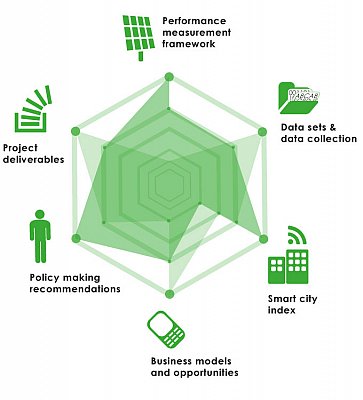SETTING STANDARDS FOR SMART CITIES
A performance evaluation framework for smart cities facilitates the examination of progress and area for improvement and/or synergies to use. against this background, the CITYkeys project aimed at developing a transparent performance evaluation framework with key performance indicators (KPI), developin recommendations for cities on how to implement the framework, and strengthening cooperation between cities and other stakeholders.
KPIS FOR SMART CITIES IN EUROPE
The research consortium of CITYkeys – VTT (Finland), AIT (Austria), and TNO (Netherlands) – cooperated with Rotterdam, Tampere, Vienna, Zagreb and Zaragoza as well as EuroCities to develop a performance measurement framework for monitoring and comparing smart city solutions across European cities. With inputs from more than 20 additional cities, the project developed a set of key performance indicators (KPIs) following an open and free, European-focused approach. The smart city KPIs were adopted by the European standards organisation, ETSI (technical specification TS103 463) and have been recognised by other major standardisation organisations.
HOW CITIES BENEFIT FROM THE PROJECT
The project primarily targetd cities that are supposed to benefit from CITYkeys in terms of
- strategic planning and measurement of their progress towards smart city goals,
- promoting response to citizen’s needs and
- making a clever use of cities budgets.
In addition, CITYkeys supported cooperation between cities involved in smart cities lighthouse projects and provided the possibility to compare solutions and find best practices. It also provided recommendations to policy-makers for collecting new sources of data in order to improved territorial knowledge for local smart city planning. Two handbooks have been published to help practioners and experts create and run a performance measurement system using CITYkeys framework of indicators.
Finally, a couple of universities and some cities have used already or plan to use the KPIs for their work on smart city strategies and practices. The project was funded by Horizon2020.
LINKS
- CITYkeys website
- CITYkeys documents
- Key Performance Indicators for Sustainable Digital Multiservice Cities (ETSI TS 103 463 V1.1.1(2017-07))
(graph by CITYkey project; available at: http://www.citykeys-project.eu/citykeys/home (June 2017))




